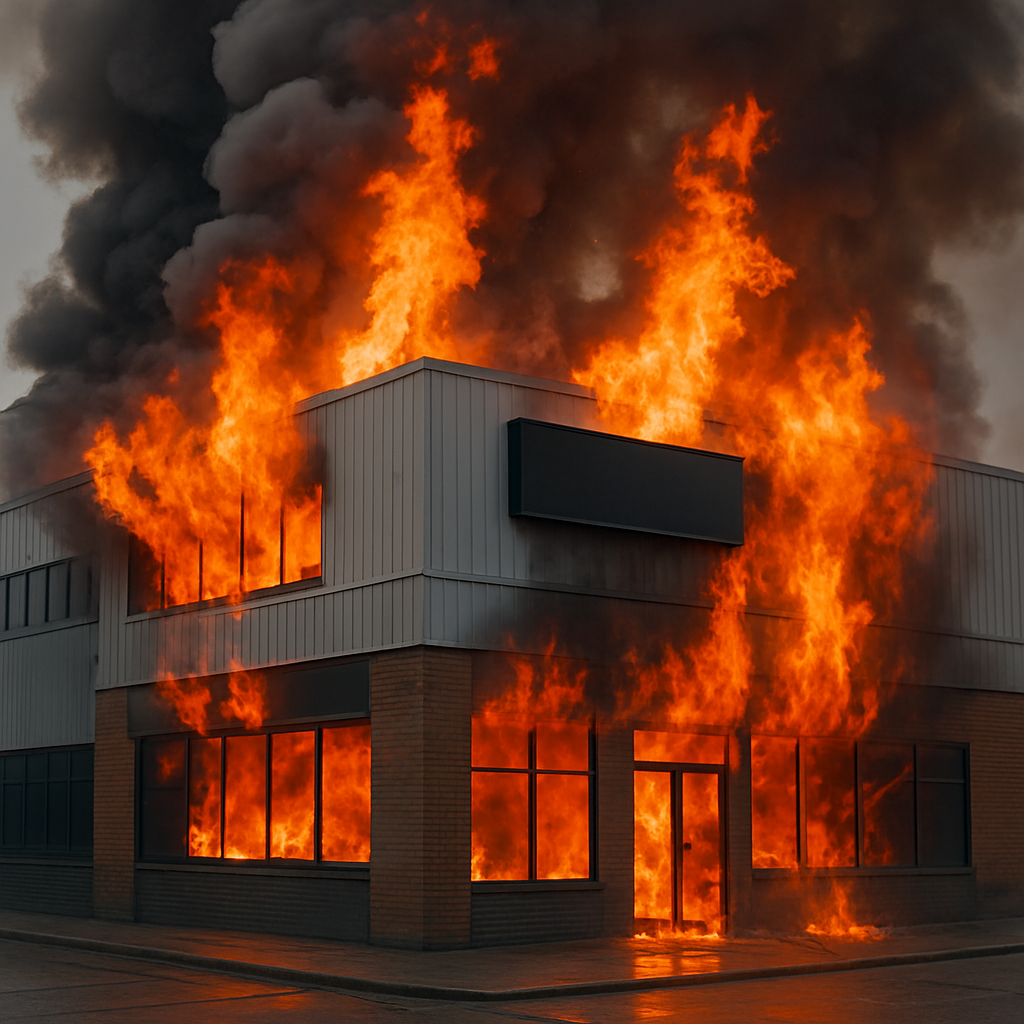
By Jenny Holly Hansen | WBN News | August 6, 2025
When reviewing a property insurance policy, most business owners notice a long list of perils like water damage, earthquake, sewer backup, and flood—often broken down in great detail. But one very important peril is usually absent from that list: fire.
It’s a fair question to ask—why wouldn’t fire be listed when it’s one of the most significant risks to any property? The answer lies in how property insurance is fundamentally designed.
Fire Is the Foundation of Property Insurance
From the very beginning of the insurance industry, fire has been the core peril that property policies were built to protect against. In fact, the earliest forms of property insurance in the modern world were called fire insurance policies, dating back to the 17th century.
Because of this historical foundation, every standard property insurance policy automatically assumes coverage for fire and lightning, unless specifically excluded. These are considered core perils—the baseline for all property coverage.
This is why you won’t see “fire” prominently listed in the section that breaks down coverage options or exclusions. It’s just understood to be there.
Why Other Perils Are Listed
In contrast, perils like earthquake, sewer backup, flood, and certain types of water damage are not automatically included in standard property policies. These risks are typically treated as optional add-ons or endorsements—coverage you can choose to include or exclude depending on your business location and risk exposure. For example:
- Flood: Almost always excluded unless added through a separate flood insurance policy or rider.
- Earthquake: Also excluded unless purchased separately, especially in high-risk areas like parts of British Columbia.
- Water damage: Standard policies may cover certain types of sudden water damage - like burst pipes.
Because these perils require deliberate action to include, they’re clearly listed—either under “covered perils” or in exclusion sections—so the policyholder knows what is and isn’t included in their coverage.
What Business Owners Should Know
Even though fire is assumed, that doesn’t mean the rest of your coverage is simple or guaranteed to be sufficient. Here are a few reminders:
- Read the exclusions: While fire is standard, how your policy handles smoke damage, wildfire evacuation costs, or business interruption from fire can vary widely.
- Understand endorsements: If you operate in an earthquake- or flood-prone area, it’s worth reviewing what’s excluded from your policy and considering what additional coverage you may need.
- Review with a insurance broker: Don’t assume your policy has all the water-related coverage you need. Sewer backup and overland water are increasingly common risks in our region.
Final Thought
If you're flipping through your insurance policy looking for the word “fire” and wondering why it’s not listed—you’re not alone. But rest assured: fire and lightning are automatically covered in all standard property insurance policies, which is why they don’t need to be spelled out.
Let’s Keep Talking:
Jenny is a business insurance broker with Waypoint Insurance. With 19 years experience, she will well versed in the technical aspects of business coverages.
She can be reached at 604-317-6755 or jholly-hansen@wbnn.news. Connect with Jenny on LinkedIn at https://www.linkedin.com/in/jenny-holly-hansen-365b691b/.
TAGS: #Jenny Holly Hansen #Commercial Property Insurance #Fire Insurance #Read the Exclusion #Understand the Endorsements #Review with a Insurance Broker



